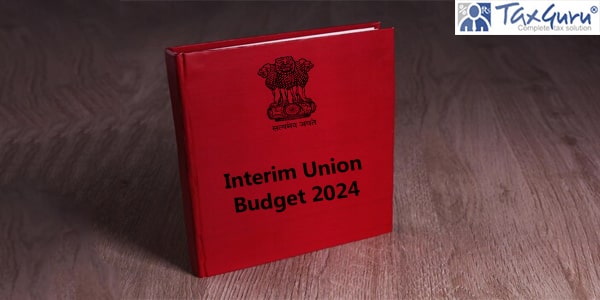Introduction: Unlock the mysteries of India’s financial landscape with a deep dive into the Interim Budget and Vote-on-Account. This comprehensive guide navigates their evolution, purpose, and the critical role they play in the country’s governance, particularly in election years.
The first Interim Budget was presented by the then Finance Minister R K Shanmukham Chetty for about 7 months (from August 15, 1947, to March 31, 1948). The interim budget was passed since the budget that had been passed by the Constituent Assembly went out of operation after the country was partitioned.
2024 being an election year in India, Central Government shall be presenting the Union Budget-2024, not a full budget but an Interim Budget on February 1, 2024 in the Parliament. Unlike a full-fledged budget, Interim Budget (also called vote-on-account) shall get Parliament’s nod for financial spends in next few months for the period till new elected Government is in office. The Interim Budgets over decades have seen a total transformation…. from economic challenges in 1950’s – 1960’s to political agenda now.
An Interim Budget is similar to a Union Budget. In Interim Budget, the ruling government tables estimate of its expenditure, revenue, fiscal deficit and financial performance and projections for the upcoming financial year. The ruling government at the end of its tenure, presents an Interim Budget for three to four months so as to keep the country running unhampered. The likely focus of the incumbent government in the Interim Budget can be to outline its economic vision for the next five years, should it return to power. Even if major tax proposals are not made, the ruling government sometimes may adopt a few populist measures to please the electorate.
Interim Budget does not make any major policy announcements during the Interim Budget which could financially burden the next government that will present the full Union Budget. According to the Election Commission’s Code of Conduct, the ruling government cannot include any major scheme in the Interim Budget as it could influence the voters. The government in power does not present the Economic Survey along with the Interim Budget.
The Interim Budget is an important concept that is seen in the news every year. It is different from a regular government budget. The Interim Budget contains detailed documentation of every expense to be incurred and every rupee to earned through taxes in the coming few months until the new government comes to power.
Interim Budget is the Finance Minster seeking Parliament’s approval for a grant in advance to meet the central government’s essential expenditure till a new Government presents a full budget. An interim budget may contain estimates of both receipts and expenditure, but it avoids major changes on the tax front.
Generally, an annual budget contains two segments –
- Report on the previous year’s income and expenses
- Proposed income generation and expenses for the coming year
In an interim budget, the first part is the same as the annual budget, i.e., the previous year’s income and expenses. However, only a documentation of the proposed basic expenses till the elections are included in the interim budget.
In an interim budget (because it is close to the general elections), the Election Commission has given regulations to the effect that any major policy changes that can influence the voters unfairly are not permitted.
A regular budget is presented for the whole financial year. An interim budget is presented when the government does not have the time to present a full budget or if there are general elections happening shortly.

The full Union Budget is presented by the newly-elected government after Lok Sabha polls. In recent times, Interim Budgets have been instrumental for the incumbent governments to list out their achievements to draw voters’ support.
The interim budget is not the same as the vote-on account. A vote-on-account contains only the expenditure of the government where as the interim budget deals with both receipts and expenditure.
Until the Parliament discusses the budget and passes it (for the whole year), through the interim budget, the government passes a vote-on-account which will allow the government to meet its expenses of administration.
As per the Constitution’s Article 116, a vote-on-account is an upfront allocation of budget from the ‘Consolidated Fund of India’ to the incumbent government and has been designated specifically to address immediate expenditure needs.
The vote-on-account passed through the interim budget, seeks parliamentary approval for the government to meet expenses for a part of the fiscal year. Parliament passes a vote-on-account, which deals only with the expenditure side of the budget. It requires no formal discussion. The vote-on-account is passed through the interim budget.
It allows the government to meet its expenses in the short period leading up to the elections. The vote-on-account is passed as a convention without discussion, as opposed to a full budget where the budget is passed only after discussions are held. It is like a grant-in-advance to the government to function properly until the voting on the demands for grants, as well as the passing of the Finance Bill and the Appropriation Bill. A vote-on-account contains only the expenditure of the government whereas the interim budget deals with both receipts and expenditure. Generally, a vote-on-account remains effective for a period of two months and can get an extension if required.
Conclusion: As we conclude this exploration, appreciate the essential role played by the Interim Budget and Vote-on-Account in India’s financial governance. Recognize their complexity, understand their distinctions, and grasp how they ensure a seamless transition of power, especially during the critical periods surrounding elections.





